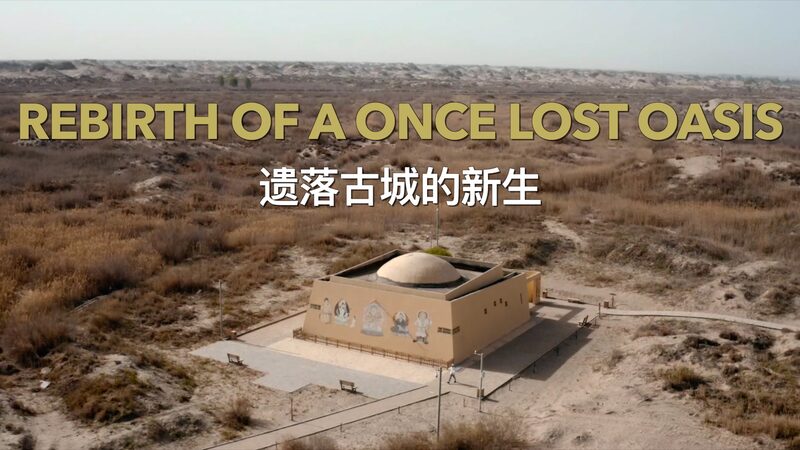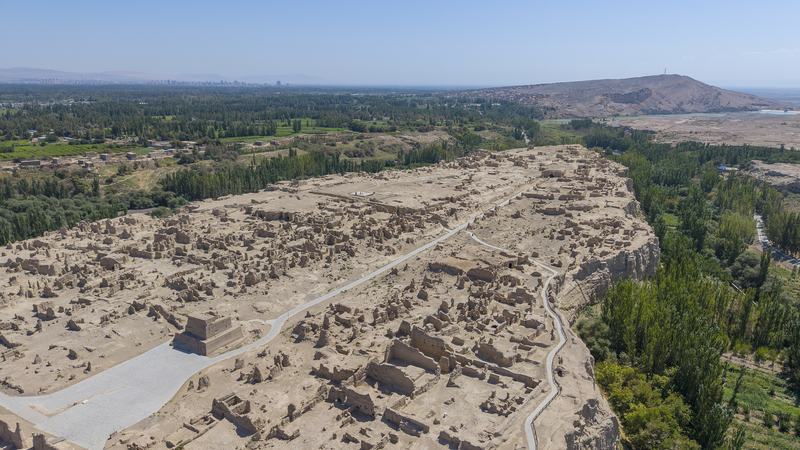Amidst the vast expanse of Xinjiang’s Tarim Basin lies the enigmatic Miran Ruins, remnants of a once-thriving civilization now swallowed by the sands. For over a millennium, an ancient temple lay buried beneath the dunes of Cele County, a silent testament to the relentless power of nature.
These lost civilizations are more than archaeological wonders; they serve as poignant reminders of the delicate balance between humanity and the environment. The sands that engulfed entire societies stand as a warning that without mindful stewardship, any civilization can succumb to nature’s forces.
In the face of this history, the people of Cele County have charted a different course. Rather than attempting to conquer the desert, the staff at the Cele Sand Control Station and local residents have embraced a philosophy of coexistence. For years, they have honed their understanding of the desert, developing innovative strategies to live in harmony with the shifting sands.
Their approach is rooted in respect for the natural world. By planting vegetation that stabilizes the soil and adopting sustainable farming practices, they have not only halted the advance of the desert but also restored vitality to the land. Their efforts are transforming the once barren landscape into a rejuvenated oasis.
The rebirth of this region offers hope and inspiration. It underscores the profound impact of collective wisdom and harmonious living with nature. As the sands recede, revealing the echoes of ancient societies, the people of Cele County are forging a legacy of resilience and sustainable prosperity for future generations.
Reference(s):
cgtn.com








